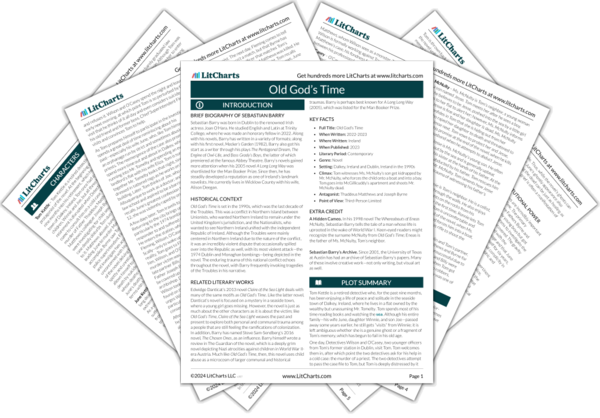Tom’s sudden mood swing into a suicidal rage reveals that his past few months of peace have been a veneer: in reality, he carries deep trauma and pain within him. At least some of this pain’s source is revealed with the twist that, despite Winnie’s “visits” to his house, she, as well as Tom’s wife June and his son Joseph, are all dead. His neighbor’s son, who is able to dance happily outside despite the miserable weather, further enrages Tom; unlike the child, he is incapable of joyfully persevering.
